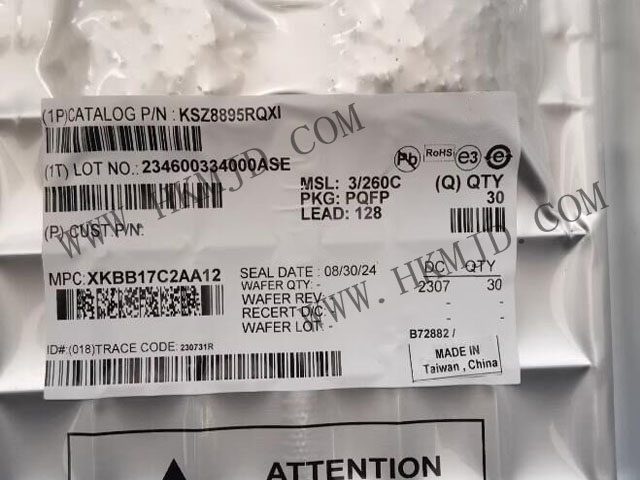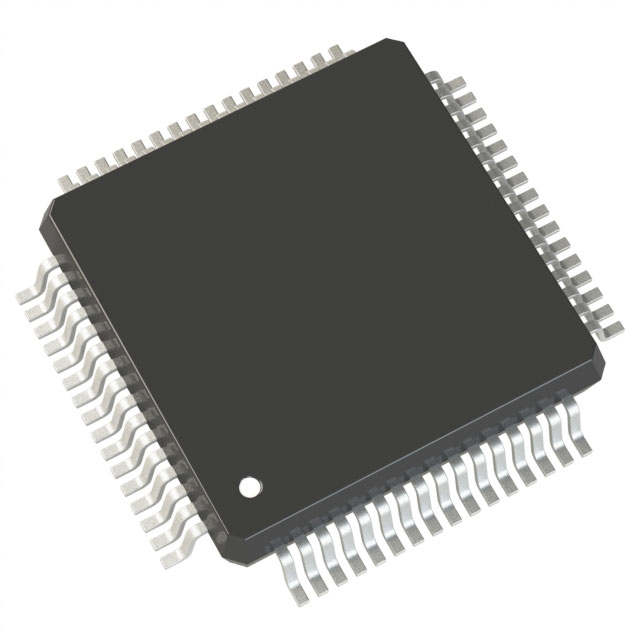Welcome Here Shenzhen Mingjiada Electronics Co., Ltd.

sales@hkmjd.com

sales@hkmjd.com

Service Telephone:86-755-83294757
 Latest Information
Latest Information Home
/Industry Information
/
Home
/Industry Information
/
AI vision chip technology upgrade to accelerate the iteration of intelligent terminal equipment
Recently, AR glasses are hot, and a number of technology companies are laying out the track, for example, Apple is developing a cheap version of Apple Vision, which is expected to go on sale in 2025 at the earliest; Meta is planning to show its first …
Recently, AR glasses are hot, and a number of technology companies are laying out the track, for example, Apple is developing a cheap version of Apple Vision, which is expected to go on sale in 2025 at the earliest; Meta is planning to show its first smart AR glasses on 25 September 2024. Industry sources believe that AR glasses are expected to become an ideal carrier for AI landing.
AI glasses requirements for vision chips
As a new type of wearable device, AI smart glasses emphasise the myopia/sunglasses attributes of glasses, and at the same time are empowered by consumer electronics/AI technology, which has the portability and user base, and is able to perceive the user's ‘vision’ and ‘hearing’.
Speaking of vision, AI glasses need the support of a vision chip, which is responsible for processing visual information such as images and videos, and supporting the operation of AI algorithms to realise a variety of intelligent functions.
The vision chip of AI glasses needs to have high-performance processing capabilities to support complex image processing and AI algorithm operation. This includes efficient parallel computing capabilities, large-capacity caches, and high-speed data transmission interfaces.
Since AI glasses usually need to be worn for long periods of time, the vision chip needs to have low-power characteristics to extend the life of the device. Low-power design can be achieved by optimising the chip architecture, adopting advanced manufacturing processes, and intelligent power management strategies.
The vision chip of AI glasses usually integrates multiple functional modules, such as ISP (Image Signal Processor), NPU (Neural Network Processor), and GPU (Graphics Processor), in order to realise the full chain of functions from image acquisition, processing to analysis.
Vision chips support the operation of AI algorithms, enabling intelligent recognition, analysis and processing of images and videos. This includes a variety of intelligent functions such as face recognition, object detection, and scene understanding.
Newly upgraded AI vision technology
Allwinner Technology is said to have in-depth research and development in the field of AI eyewear, especially in the AI vision chip technology has made significant progress. The news shows that a number of VR applications equipped with the company's VR9 series of chip products have been exhibited at the CES show at the beginning of the year, including GOOVIS smart glasses, Pico headset, DuoDuo Viewer, Emdoor VR and other products.
In addition, Allwinner Technology's newly launched V85X series chips are also suitable for AI glasses, which are equipped with a self-developed new generation of AI ISP intelligent image processing engine - Allwinner Intelligent Shadow, this technology through massive data training and SoC platform model depth optimisation, which is able to improve the imaging effect in complex low illumination scenes This technology can improve the imaging effect in complex low-light scenarios through data training and in-depth optimisation of the SoC platform model, and achieve full colour in black light, while providing better quality inputs for AI detection and processing to improve the detection and recognition rate.
V85X series chips are the new generation of high-performance, low-power processor SOCs for the intelligent vision field, integrating dual CPUs of ARM Cortex-A7 and RISC-V E907, where the Cortex-A7 processor provides high-performance application processing capability, while the RISC-V E907 serves as the auxiliary core, focusing on low-power consumption and specific task processing. task processing. In addition, this series of chips has a built-in NPU with a maximum of 1T arithmetic power, which is capable of supporting complex AI algorithms and deep learning applications, providing powerful edge computing capabilities.
According to Allwinner Technology, nowadays, video products are developing at a rapid iterative pace, from the earliest VGA to 720P, 1080P, and then to 2K and 4K, and each technological upgrade has greatly improved the user experience of visual products. Among them, in addition to the continuous upgrading of resolution, the pursuit of night vision effect visual experience has never stopped. When the night falls with insufficient light, the current mainstream vision products often can only rely on infrared, white light and other external complementary light methods to achieve black and white images or colour images, and the loss of color/light pollution seriously affects the customer experience.
With the in-depth combination of vision SoCs and AI NPUs, ‘Black Light Full Color Technology’ has been newly launched, which improves the light-sensitive limit of products, optimizes the colour imaging level of products in dark light environments, and provides users with an experience that is superior to that of the human eye. In response to this technological upgrade and market demand, Allwinner has launched a new generation of self-developed AI ISP intelligent image processing engine - Allwinner Intelligent Shadow - on the V85X series chip.

Time:2025-07-04
![[In Stock] MACOM MALD-37030B: A High-performance 26 Gbps Multi-rate Laser Driver](/upload/202507/04/202507041541470840.png)
Time:2025-07-04

Time:2025-07-04

Time:2025-07-04
Contact Number:86-755-83294757
Enterprise QQ:1668527835/ 2850151598/ 2850151584/ 2850151585
Business Hours:9:00-18:00
E-mail:sales@hkmjd.com
Company Address:Room1239, Guoli building, Zhenzhong Road, Futian District, Shenzhen, Guangdong
CopyRight ©2022 Copyright belongs to Mingjiada Yue ICP Bei No. 05062024-12

Official QR Code
Links: